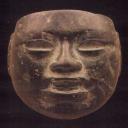Yahoo Answers is shutting down on May 4th, 2021 (Eastern Time) and beginning April 20th, 2021 (Eastern Time) the Yahoo Answers website will be in read-only mode. There will be no changes to other Yahoo properties or services, or your Yahoo account. You can find more information about the Yahoo Answers shutdown and how to download your data on this help page.
Trending News
industrial revolution help?
Did political changes and urbanization effect the social structure in Britain due to the industrial revolution? I've already got things about new classes and children and women working but i was just wondering if those other points would be classified as altering the social structure? Thanks!
3 Answers
- Tim DLv 78 years agoFavorite Answer
Urbanisation led to many previously uneducated people becoming more educated, the working classes learned to read and could discuss their learning with each other – this meant that they became more politicised. Their political awareness in turn led to the Reform Acts which enfranchised (allowed voting) more of the population. The working classes not only became aware of their status, they were also aware of their worth. As this class increased its political worth so did the middle classes, money now flowed into their pockets rather than those that owned the land (the nobility) – and money bought position.
- spiffer1Lv 78 years ago
The working class was spawned by the Industrial Revolution - child labour came to the fore as owners and managers worked to keep costs/wages down.
The middle class expanded immensely due to the fact this was the group out of which the managers for the means of production came.
A 'nouveau riche' came to be as the result of entrepreneurs investing in the mines and factories - something the old elites were reticent to do. Thus the new ownership class tended to supersede the old nobility and wealthy landowners.
Thus there were some class tensions.
- Anonymous8 years ago
this is the period of the working class. in this period the British economy grows but the social aspect doesn't. In fact, the workers (now replaced by machines) now do for twelve hours a day small repetitive movements that favor the madness and demean the hard work of the workers of the past. in the factories are exploited women and children who work long hours to be poorly paid. during the industrial revolution there is a high rate of depression.



